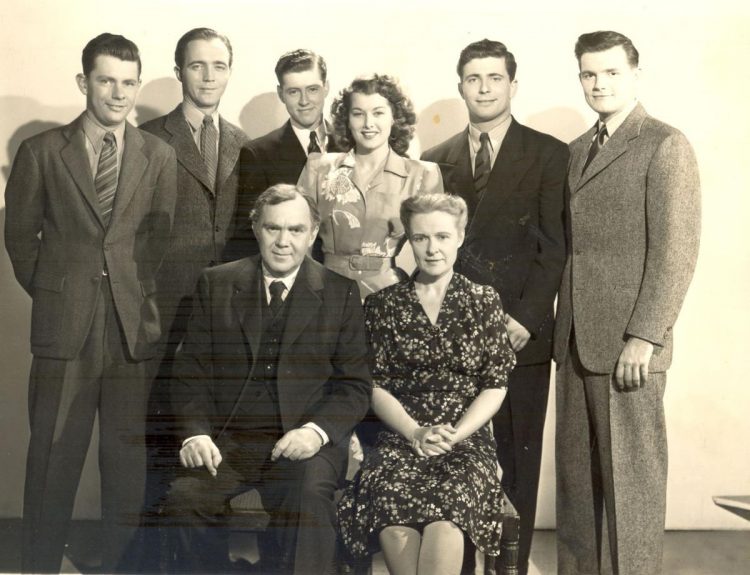This is a re-post from another website. Today seems as good a day as any to copy and paste.
________________
Alasdair MacIntyre complained about the modern nation-state almost 25 years ago in ways that foreshadowed some of today’s antagonism to nationalism. He wrote:
The modern nation-state, in whatever guise, is a dangerous and unmanageable institution, presenting itself on the one hand as a bureaucratic supplier of goods and services, which is always about to, but never actually does, give its clients value for money, and on the other as a repository of sacred values, which from time to time invites one to lay down one’s life on its behalf. As I have remarked elsewhere, it is like being asked to die for the telephone company. Alasdair MacIntyre, “A Partial Response to My Critics”
Michael Brendan Dougherty doesn’t exactly address nationalism but instead responds to a New York Times video that makes loyalty to nation sound like a piece of human existence from a primitive time:
The video …constantly invokes borders, for a reason: To make nationality sound silly. It indeed would be dumb to base your identity “just based on borders,” but in fact the relationship is the other way around. The identity is based on a shared homeland, or territory, along with shared law. National loyalty makes possible the kind of self-sacrifice that is necessary for living in peace with strangers. And in fact, the notable thing about national loyalty isn’t the times when, aggravated, it motivates us in war. War was very common before modern nationalism. Much more notable is the everyday peace and neighborliness that national loyalty fosters between people who may not share a tribe or a religious creed. Without nationality, we may still be trying to settle the wars of religion. With it, we were able to contribute to common treasuries whereby we provide for one other regardless of our ethnic background and religion. The border is just what you draw around this home.
The Times chooses Rocky IV to belittle its subject as well. It is a silly movie, which deploys the idea of national conflict in a heavy-handed way. But its effect “on our brains” is not in itself insidious, but commonplace and even comforting. National legends and patriotic songs exist to bind our emotions and our imaginations, to our national homes and to the people that share them. Sometimes, yes, they inspire a hatred of those who might work to destroy them. The most obvious alternative to binding our emotions to our national homes isn’t some higher peace. It’s something baser, as we’ll see.
Dougherty is valuable for countering journalists and government officials who fail to recognize the ways in which nation-states have preserved order, stability, law, and prosperity more than they have also sent citizens to war for some time ignoble reasons.
But I still wonder about MacIntyre’s point. Is dying for nation (or country) truly noble? More personally, would I be willing to fight for the sake of the United States? I can conceive of dying to save my wife or being willing to die if someone demanded that I deny Christ. But the nation?
Two pieces of Americana give this question weight. One is the Stephen Spielberg movie, The Post, which isn’t great and elides many of the important questions it raises about journalism during a war and a newspaper’s conflicted interests to turn a profit, beat a competitor to the story, and report for the good of the nation (truth and social stability). But one scene was particularly poignant, the one where Katherine Graham, the paper’s owner, confronts Robert McNamara, one of the chief strategists for the Kennedy and Johnson administrations in conducting the war in Vietnam, to ask what he knew and when he knew it. Once the Pentagon Papers come out and the public knew that many in the Johnson administration never thought victory was possible, Graham wants to know how McNamara could avoid saying something when her son (who survived) went to fight in Vietnam. Simply as a friend of the family, McNamara could (and should?) have let his friend know that this war was flawed. But he did not. The question Graham thinks but never asks is “would you have let my son die for such a foolish war?”
Another war movie that avoids this point is The Fighting Sullivans, a 1944 film about the five Sullivan brothers from Waterloo, Iowa, who all died when a Japanese torpedo sank the ship on which they were serving in the Pacific during World War II. The movie turns the boys into heroes, examples of bravery, fine, upstanding citizens. The book about the movie, the family, and the town by Bruce Kuklick, The Fighting Sullivans, shows how Hollywood was guilty of hype, the Sullivan family was not as reputable as the movie portrayed them, and that the town of Waterloo was almost always ambivalent about turning the city into a monument to honor a family that was a challenge.
But Kuklick scores his biggest point when he writes in the conclusion:
10 percent of the film conveys the most important fact entailed by the call to duty in even a democratic nation in a good war. The five brothers surrendered their lives to the state. FULL STOP. For those who lose their children in war, no closure exists. FULL STOP. Such deaths defeat families. FULL STOP. It is hard to combine the sentimentality of 90 percent of the film with the shocking 10 percent. (172)
Which leaves us with MacIntyre’s question. The United States may not be great. It may only be pretty, pretty, pretty good. But even if it were great, is that good enough to sacrifice your life?




